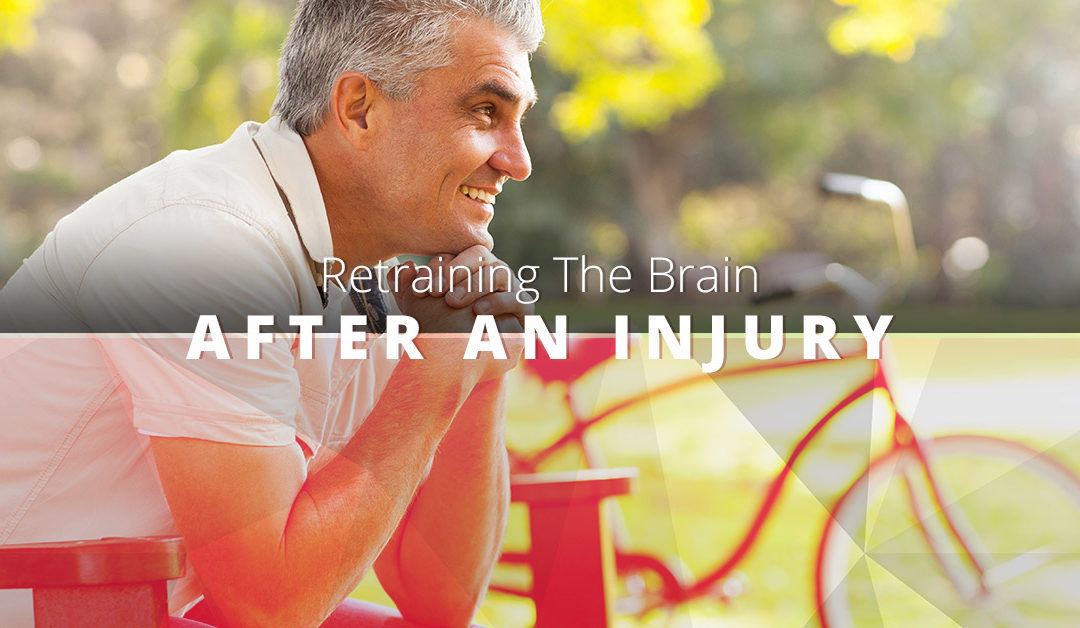Out of all of our organs, the brain is one that we use regularly. We can say that about a few other organs, but there’s nothing quite like the brain. While bones can be set in casts and muscles and ligaments can be operated on to gain back functionality, the brain can take any trauma that it experiences and work its way through the injury.
In the case that you’ve experienced a brain injury recently, you are well aware that the healing process is one that takes time, dedication and perseverance. The team at ACRM wants to provide you with all of the resources that you need to make overcoming this brain injury as easy as possible. If you’re looking for methods that could help you push through some mental healing roadblocks, check out today’s blog because that’s precisely what we’re going to be covering.
Restoration & Innovation
The healing of the brain after a serious trauma is going to be comprised heavily of restoration and innovation. Restoration is pretty straightforward in that it is truly restoring the methods and techniques in which you use your brain to get through movements, processes, thoughts, etc. It is one of the easier forms of healing because it is training and reminding your brain how to do something that it was once familiar with.
Innovation will come in when restoration is not possible and requires you and your doctor to think out of the box and find a new solution. There are times where brain injuries are only going to focus on restoring the skills you once had, but there will be times where trauma to the brain can require starting from scratch, getting creative and learning something new — and there’s nothing wrong with that!
The key to both of these is the ability to be open and learn from whatever comes your way, regardless of how challenging it may be.
Comprehension
A skill that can be challenging to work through and gain back is comprehension. This is a skill that takes years alone to get a grip on and gain, so it is expected for it to be one of the most challenging to gain back. While there are many ways to work on reacquiring this skill, one of the best things that you can do is read. Starting with smaller, basic books is a fantastic way to challenge your brain to comprehend the words that it’s scanning over. From there, work your way to things like recipes and novels that will then challenge you to not only read the words and have a comprehension of them there but also to follow a story and comprehend how all of the pieces work together.
The great part about this is that it’s fairly easy to find something that you enjoy that also challenges you to work on your comprehension. That way you’re interested in what you’re reading, are familiar with the comprehension portion and can have a better grip on where your comprehension is.
Strategy
Another important skill that you’ll want to work on gaining back is strategy. Again, this is a skill that takes so much time to acquire, and for some, it is something that is natural and easy for them, while others have a hard time strategizing through situations. Regardless of where you stood before your brain injury, working on your strategy is a great way to challenge yourself while working various parts of the brain.
There are so many great ways to do this, but one of the best ways will be through strategy games. Over the years we’ve seen more and more strategy games surface, but there are some classics that remain equally challenging and fun while also requiring you to strategize. Anything from chess to Sudoku and the many other games that focus on strategy (including many new app developments) can help you regain your ability to strategize.
Take Breaks
While it can be intriguing to keep pushing yourself while recovering from your brain injury, taking breaks and resting are going to be equally important. Finding a way to give yourself some downtime is crucial to let your brain rest and wander as it may. For some, the best way to do this is by working out or participating in physical activities. For others, it’s in listening to classical music or going to the art museum. Find an activity that you enjoy doing, but still allows for your brain to get the rest that it needs.
Retraining the brain is so challenging, and it requires more than the points that we’ve listed above. For some it takes months, and for others it takes years, but it’s crucial to know that there are so many different approaches available to work on the well-being of your brain. Always talk to your doctor about the options that are available to you that will help you with your recovery.
ACRM works hard to provide patients with solutions, and unfortunately, that isn’t as easy as it sounds. Through years of research and studying, we have, however, been able to provide insight. If you’re interested in rehabilitation research and studies, check out our website for the studies that we’ve conducted and the answers that we’ve found. You can also find a wide array of topics covered in our blog space. We appreciate you taking the time to read our blog.











